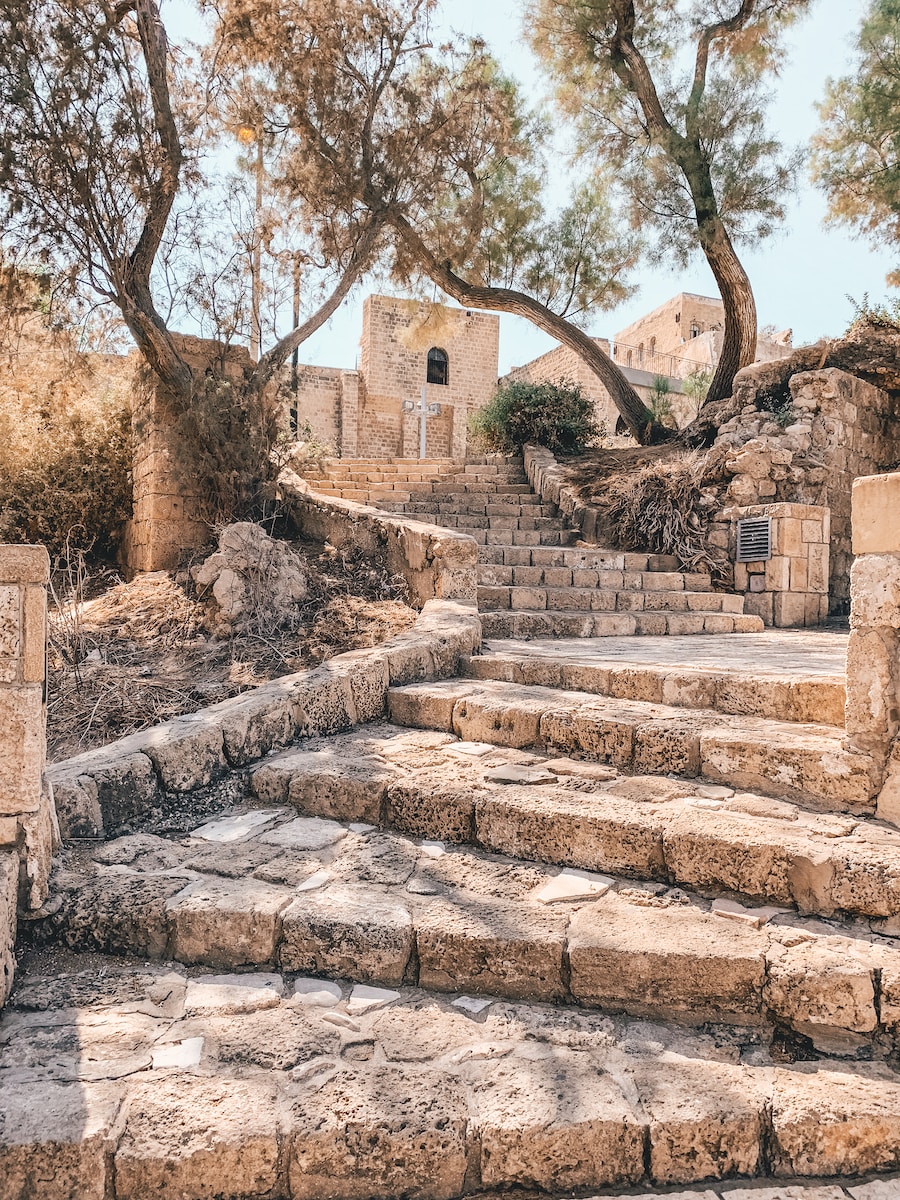Introduction: Rejoicing in Salvation and the Fulfillment of Divine Promise in Isaiah Chapter 12
Isaiah Chapter 12 is a powerful expression of gratitude and praise for God’s salvation. It is a song of thanksgiving, highlighting the themes of rejoicing in salvation and the fulfillment of divine promise. This chapter holds significant significance in religious and spiritual contexts, inspiring believers to find joy in their salvation and trust in God’s promises.
In Isaiah Chapter 12, the prophet Isaiah is addressing the people of Israel, reminding them of the goodness and faithfulness of God. It is a call to rejoice and give thanks for the salvation that God provides. The chapter serves as a reminder that even in times of trouble and uncertainty, God remains steadfast and is deserving of our praise and gratitude.
The concept of salvation is one that is central to many faith traditions. It represents the deliverance from sin and the restoration of a relationship with the divine. In Isaiah Chapter 12, the focus is on rejoicing in this salvation and recognizing the fulfillment of divine promise. As believers, we are called to express our gratitude for the salvation that we have received and to trust in the promises of God.
Historical and Cultural Context of Isaiah Chapter 12
Isaiah Chapter 12 marks the end of the first major section of the book of Isaiah. The pronouns “you,” “I,” and “me” in this chapter refer to Israel and the believing remnant. Throughout the book of Isaiah, the theme of God’s judgment and comfort is prevalent, reflecting the historical and cultural context of the people of Israel.
During the time of Isaiah, the nation of Israel was facing political turmoil and the threat of invasion from neighboring nations. The people were living in fear and uncertainty, unsure of what the future held for them. It is in this context that Isaiah brings a message of hope and reassurance, reminding the people that God is their strength and salvation.
The historical and cultural context of Isaiah Chapter 12 helps us understand the significance of the themes and messages contained within it. The people of Israel were longing for deliverance and restoration, and Isaiah’s words provided them with hope and encouragement. The chapter speaks to the deep desire within all of us to be saved from our troubles and to find comfort and peace in God.
#Isaiah12 #RejoicinginSalvation #JesusChrist #PropheticFulfillment #DivineDeliverance #Redemption #SpiritualRejoicing #AnticipationofSavior #TheologicalContext #BiblicalProphecy #Messiah’sRole #GratitudeforSalvation #TrustinGodsFaithfulness #AssuranceofRedemption #FaithinGodsPromises
Overview of Isaiah Chapter 12
Isaiah Chapter 12 is a hymn of praise and thanksgiving for the hope of the faithful remnant’s return to Jerusalem.It emphasizes the turning away of God’s anger and the comfort He provides. The chapter highlights the trust in God, drawing water from the wells of salvation, and proclaiming His deeds.
One specific example that illustrates the main point of Isaiah Chapter 12 is the story of the Israelites crossing the Red Sea. Just as God delivered the Israelites from the hands of the Egyptians, He promises to deliver His people from their enemies and provide them with salvation. This example shows how the themes of rejoicing in salvation and the fulfillment of divine promise are deeply rooted in the history and tradition of the Israelites.
The main message of Isaiah Chapter 12 is the importance of giving thanks and praise to God for His salvation. It reminds us that even in times of trouble and uncertainty, we can find comfort and strength in God. The chapter encourages us to trust in His promises and to draw from the wells of salvation with joy.
Key Themes and Messages in Isaiah Chapter 12
The main themes in Isaiah Chapter 12 are rejoicing in salvation and the fulfillment of divine promise. The chapter emphasizes the trust in God’s salvation and the absence of fear. It also highlights the strength and joy that come from the Lord.
One example that illustrates the theme of rejoicing in salvation is the story of King David. Throughout the Psalms, David expresses his gratitude and praise for God’s salvation. Despite facing numerous challenges and enemies, David always found comfort and strength in God. His example serves as a reminder that we too can find joy and rejoicing in our own salvation.
The message of trust in God’s salvation and the absence of fear is particularly relevant in today’s world. We often face situations that cause us to worry and be anxious. However, Isaiah Chapter 12 reminds us that we can find peace and confidence in God’s salvation. We can trust in His promises and know that He is with us, even in the midst of difficult circumstances.
The strength and joy that come from the Lord are also important themes in Isaiah Chapter 12. The chapter encourages us to find our strength in God and to allow His joy to fill our hearts. This message reminds us that true happiness and fulfillment can only be found in our relationship with God.
Rejoicing in Salvation
Isaiah Chapter 12 encourages believers to sing songs of praise for their own salvation. It emphasizes that many will join in praising God for the common benefit of this salvation. Even when God is angry with His people, believers should still give thanks to Him.
One example of rejoicing in salvation can be seen in the story of the prodigal son in the New Testament. When the son returns home after squandering his inheritance, his father rejoices and celebrates his return. This story illustrates the joy and celebration that accompanies salvation, both for the individual and for the community.
Believers are called to give thanks and praise to God for the salvation they have received. This act of rejoicing is not only for our own benefit but also for the benefit of others. When we express our gratitude and joy, it can inspire and encourage those around us to do the same.
The Fulfillment of Divine Promise
In Isaiah Chapter 12, God’s anger is turned away, and His comforts are given to His people. The ultimate comfort is found in God Himself, who is their strength and salvation. This chapter also looks forward to the future reign of the Messiah and the establishment of His kingdom.
The fulfillment of divine promise is a central theme throughout the Bible. From the promise of a Savior in the book of Genesis to the fulfillment of that promise in the birth of Jesus Christ, God has consistently shown Himself faithful to His word. Isaiah Chapter 12 reminds believers that God’s promises are sure and that He will bring about their fulfillment in His perfect timing.
One example of the fulfillment of divine promise is the story of Abraham and Sarah. Despite being old and barren, God promised them a child. In their old age, Sarah miraculously gave birth to Isaac, fulfilling God’s promise. This example shows that God is faithful to His promises, even when they seem impossible or unlikely.
The fulfillment of divine promise gives us hope and assurance. It reminds us that God is always working behind the scenes, orchestrating events according to His plan. We can trust in His promises and know that He will bring them to pass in His perfect timing.
Analysis of Specific Verses and Passages
Isaiah Chapter 12 encourages believers to trust in God and find strength and comfort in Him. It uses the metaphor of drawing water with joy from the wells of salvation. This metaphor represents actively seeking and receiving God’s provisions, finding satisfaction and refreshment through His salvation. The inhabitants of Zion and Jerusalem are called to praise the Lord, proclaim His name, and declare His doings.
One specific verse that stands out in Isaiah Chapter 12 is verse 2, which says, “Behold, God is my salvation; I will trust, and will not be afraid; for the Lord God is my strength and my song, and he has become my salvation.” This verse highlights the importance of trust in God and the confidence that comes from knowing that He is our strength and salvation.
This verse reminds us that our strength and confidence come from God alone. When we trust in Him, we can face any challenge or obstacle without fear. God is our salvation, and He will never leave us or forsake us. This truth should fill our hearts with joy and gratitude.
Comparison to Israel’s Deliverance from Egypt
Isaiah Chapter 12 compares the salvation promised within it to Israel’s deliverance from Egypt. This comparison highlights the magnitude and significance of God’s salvation. It emphasizes the liberation and redemption experienced by the people.
The comparison to Israel’s deliverance from Egypt serves as a reminder of God’s faithfulness and the power of His salvation. Just as God delivered the Israelites from slavery in Egypt, He continues to deliver His people from the bondage of sin and the struggles of this world.
The story of the Israelites’ deliverance from Egypt is a powerful example of God’s saving power. They were enslaved and oppressed, but God heard their cries and rescued them. This story shows that God is able to deliver His people from any situation, no matter how dire it may seem.
Drawing Water with Joy from the Wells of Salvation
Believers are encouraged in Isaiah Chapter 12 to draw water with joy from the wells of salvation. This metaphor signifies actively seeking and receiving God’s provisions. It represents finding satisfaction and refreshment through the salvation offered by God.
Drawing water with joy from the wells of salvation symbolizes the act of coming to God and receiving His blessings and provisions. It is a reminder that God is the source of all good things and that we can find true satisfaction and refreshment in Him.
In the New Testament, Jesus also uses the metaphor of water to illustrate the spiritual satisfaction that comes from a relationship with God. In John 4:14, Jesus says, “But whoever drinks of the water that I will give him will never be thirsty again. The water that I will give him will become in him a spring of water welling up to eternal life.” This example emphasizes the lasting satisfaction and fulfillment that comes from receiving God’s salvation.
Praising the Lord as the Holy One of Israel
The inhabitants of Zion are called in Isaiah Chapter 12 to cry aloud and shout because the Holy One of Israel is great in their midst. Praising the Lord as the Holy One of Israel acknowledges His greatness and holiness. It recognizes His presence and power among His people.
Praising the Lord as the Holy One of Israel is an act of worship and reverence. It is a recognition of God’s greatness and a declaration of His holiness. By praising God as the Holy One of Israel, believers acknowledge His presence and power in their lives.
The act of praising God is a common theme throughout the Bible. In the Psalms, King David frequently praises God for His greatness and faithfulness. One example is found in Psalm 145:3, which says, “Great is the Lord, and greatly to be praised, and his greatness is unsearchable.” This example illustrates the importance of praising God for His greatness and acknowledging His presence in our lives.
Conclusion: The Joy of Salvation and Divine Promise in Isaiah Chapter 12
Isaiah Chapter 12 serves as a beautiful expression of gratitude and praise for God’s salvation. It conveys the message of trust, strength, and rejoicing in His faithfulness. The chapter’s significance extends to religious and spiritual contexts, inspiring believers to find joy in their salvation and trust in God’s promises.
In Isaiah Chapter 12, we are reminded of the importance of rejoicing in our salvation and finding strength and comfort in God. The chapter encourages us to trust in His promises and to praise Him for His faithfulness. It serves as a reminder that God is our strength and salvation and that we can find true joy and fulfillment in Him. As we reflect on Isaiah Chapter 12, may we be inspired to live lives of gratitude and praise, always trusting in the goodness and faithfulness of our heavenly Father.
The themes and messages of Isaiah Chapter 12 are timeless and relevant for believers today. They remind us of the hope and assurance we have in God’s salvation. As we face the challenges and uncertainties of life, we can find comfort and strength in knowing that God is with us. He is our strength, our salvation, and our source of joy. May we always rejoice in His salvation and trust in His promises.


